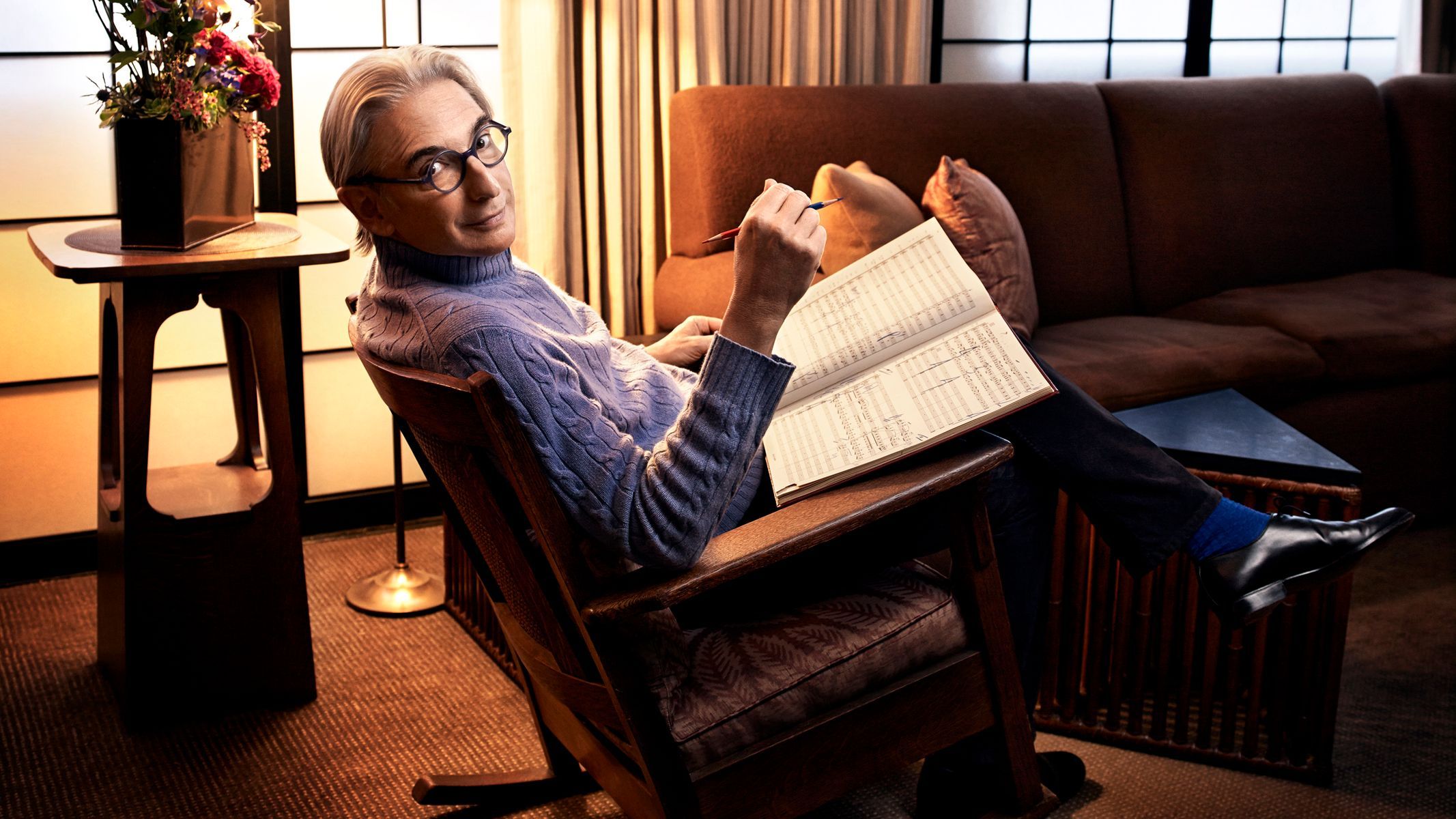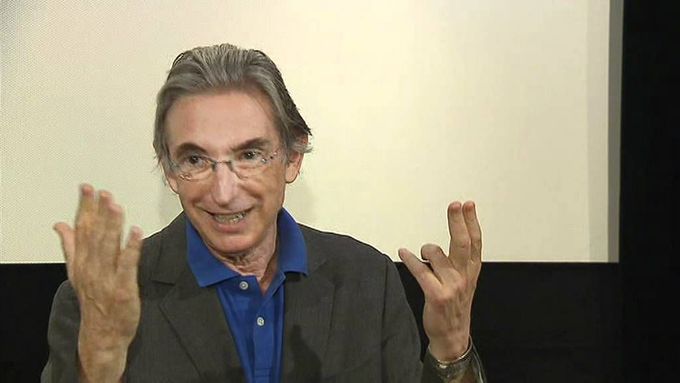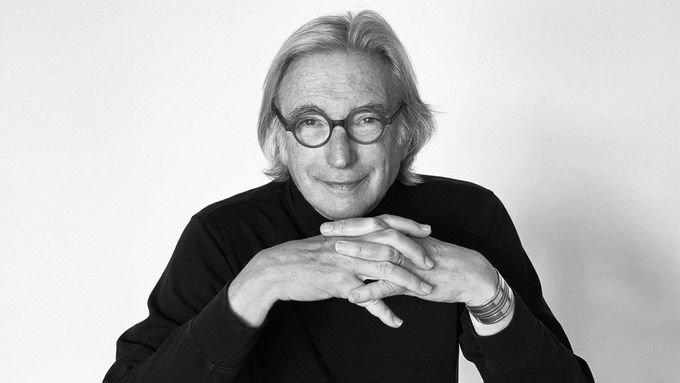77-year-old American conductor Michael Tilson Thomas was diagnosed with an aggressive brain tumor last year. “See you at the concert in November,” he said before the operation, which immediately saved his life. However, given the high mortality rate associated with one of the most aggressive forms of cancer, few expected Thomas to live up to the resolution.
But as he promised, he did. Last November, he actually presided over the New York Philharmonic again, since then he has worked with orchestras in San Francisco, Miami, Washington, Cleveland and London. This week, he will be standing on the Prague stage three times Rudolfinawhere he performed with the Czech Philharmonic from Wednesday to Friday.
Michael Tilson Thomas has had a brilliant career. A former pupil of Leonard Bernstein, he was a successful conductor, composer and promoter of classical music. Won 12 Grammy Awards, made over 120 records, collaborated with everyone from Chinese pianists Yuji Wang after singer Elvis Costello or band Metallica. He founded the New World Symphony orchestra academy, through which more than 1,200 students passed. And overshadowing all of this is his 25 years as chief conductor of the San Francisco Symphony Orchestra, which he brings to world class.
Performed by Michael Tilson Thomas. | Photo: Kristen Loken
Of course the disease hit him. His hair was gray and thinner, he was losing weight. When he presided over the Bavarian Radio Symphony Orchestra in Munich last month, he moved more slowly. However, he did not lose his sense of humor. “You know, post-pandemic line,” he joked to the crowd as he tugged at his pants on the conductor’s podium.
However, reviewers praised her performance as before. And he himself said that he had no intention of slowing down. “I look forward to working with orchestras in the United States and Europe for the remainder of the season, as well as many collaborations next season,” he wrote in March. “I’m not going anywhere. I know nothing but the opportunity to be creative and collaborate on beautiful music,” he added.
He had already refused an interview, he didn’t even want to talk to Aktuálně.cz before arriving in Prague. However, from recent statements, it seems that he is a bit balanced. When he spoke at a student’s graduation at New York’s famed Juilliard School of Music last month, he summed up his career and life between the lines.
Thomas’ grandparents were Jews from Ukrainian shtetl who immigrated to the US in the 1880s. The conductor’s parents made a living as actors, they founded the Yiddish theater which was attended by composer Irving Berlin and the Gershwin brothers. It was George Gershwin who first taught Thomas’ father the piano.
Michael Tilson Thomas said today that he was raised in a “show business family”. He grew up in Los Angeles, and by the time he started taking piano lessons at the age of ten, he could already play it. At the University of Southern California, he met important European emigrants, composer Igor Stravinsky and violinist Jasch Heifetz. And he accumulated his first work experience as a pianist and assistant conductor of the Boston Symphony Orchestra. It was also done by a refugee from Europe: German William Steinberg, born Hans Wilhelm Steinberg, one of the conductors of the New German Theater in Prague in the 1920s.
Michael Tilson Thomas remembers his meeting with Alma Mahler. Footage from the Prague Spring festival, 2011. | Video: Prague Spring
Thomas remembered him as someone who was tough on his subordinates, but also loved them at the same time. After only three months as an assistant, Steinberg threw him in the water so the young man could learn to swim: he came to Thomas during a recess during a concert in New York and casually informed him that the young man would lead the second. half for him.
“I froze,” Thomas recalls. He didn’t know if Steinberg was joking. But the chief conductor repeated the challenge. “Don’t you understand me? Get dressed, you lead in twenty minutes,” he ordered. Thomas got dressed, cut the second half – and put on another 40 concerts in the same season.
He gradually rose to the position of chief guest conductor in Boston. In the next two decades, he held several positions: first he was chief conductor of the Philharmonic at Buffalo, then from 1988 to 1995 at the London Symphony Orchestra. Meanwhile, he served as Principal Guest Conductor of the Los Angeles Philharmonic. And in Miami in 1988 he founded the New World Symphony orchestra academy.
Thomas’ most famous era began in 1995, when he was appointed principal conductor of the San Francisco Symphony Orchestra. It also coincided with a personal situation: in the conservative classical music world, the conductor decided to go out for a long time. Joining the liberal San Francisco also contributed to courage. “The whole city lauded me and my husband, Joshua, as the first gay couple to lead an American orchestra,” he recalls. She and her husband, as well as her manager Joshua Mark Robison, have known each other since they were teenagers. They started dating in the 1970s and after decades of living together, they are finally together they take year 2014.
Thomas led the San Francisco Orchestra until the previous year. He performs a classical romantic repertoire with him as well as modern and contemporary works. They visited Prague seven times, most often as guests of the Prague Spring festival.
Thomas became famous for his interpretations of the works of Gustav Mahler, all of which he recorded in San Francisco. Otherwise, it has wide coverage. With their teacher Leonard Bernstein, they discuss popular Broadway songs or argue about who best records the old blues song Careless Love – singers Bessie Smith and Big Mama Thornton or Ray Charles. While still working at the Los Angeles Philharmonic, Thomas also collaborated with renowned jazz singer Sara Vaughan. “I learned a lot from him,” he said today.
He also has a strong background in theatre. He collaborates with dancers Pina Bauschová, Mikhail Baryšnikov or Jacques d’Ambois. And her interest in ballet is also reflected in the work she will perform three times this week with the Czech Philharmonic – Appalachian Spring of Aaron Copland’s modern American classical music from 1944. He originally composed it for ballet for choreographer Martha Graham.
Aaron Copland’s Appalachian Spring recorded by Michael Tilson Thomas with the San Francisco Orchestra in 1999. Photo: Brigitte Lacombe | Video: BMG Music
A year later, his composition won the Pulitzer Prize and is still considered by many to be a symbol of modern American music: energetic, upbeat, thanks to its bouncy, dance-inspired rhythm. square dance anchored in folk tradition, at the same time with spiritual undertones – part of the composition is a variation of the song Simple Gift, associated with the Shakers, or the now nearly extinct American Christian church.
The ballet was so successful that the author made an orchestral suite out of it a year after its premiere. Since then, there have been several copyrighted versions or adaptations.
Michael Tilson Thomas returns ten minutes of original ballet music to the one he will present in Prague this week. The Conductor has recorded the Appalachian Spring in 1999 with the San Francisco Symphony Orchestra. At the time, Gramophon magazine praised the album, saying that it was precisely because of those extra ten minutes that Appalachian Spring sounded more pompous and had a better effect on emotions.
In the second half of the evening, Thomas and the Czech Philharmonic will perform the Ninth Symphony by one of his favorite composers, Franz Schubert. “Doing Schubert’s music really honors and inspires me. Very honest, generous and selfless,” he explained some time ago.
And something similar this year he says also to the students of Juilliard School, when he appealed to them not to forget offstage events for the sake of the music itself. “The most important question is what happens after the concert, when the curtains fall and the lights go out. What will people take from the concert? What have we as artists done to enrich their mentality?” He asked.
In this case, Michael Tilson Thomas seems to just need to get on stage today. When he performed Beethoven’s Third Symphony entitled Eroica, or Heroic, in November with the New York Philharmonic, the New York Times recalled the circumstances of its creation: composers initially began composing it for Napoleon, but in the end he crossed out his dedication and understood Eroica only vaguely “for honor a great man.” How they added New York Times, “this time the big man is Michael Tilson Thomas”.

“Certified bacon geek. Evil social media fanatic. Music practitioner. Communicator.”









